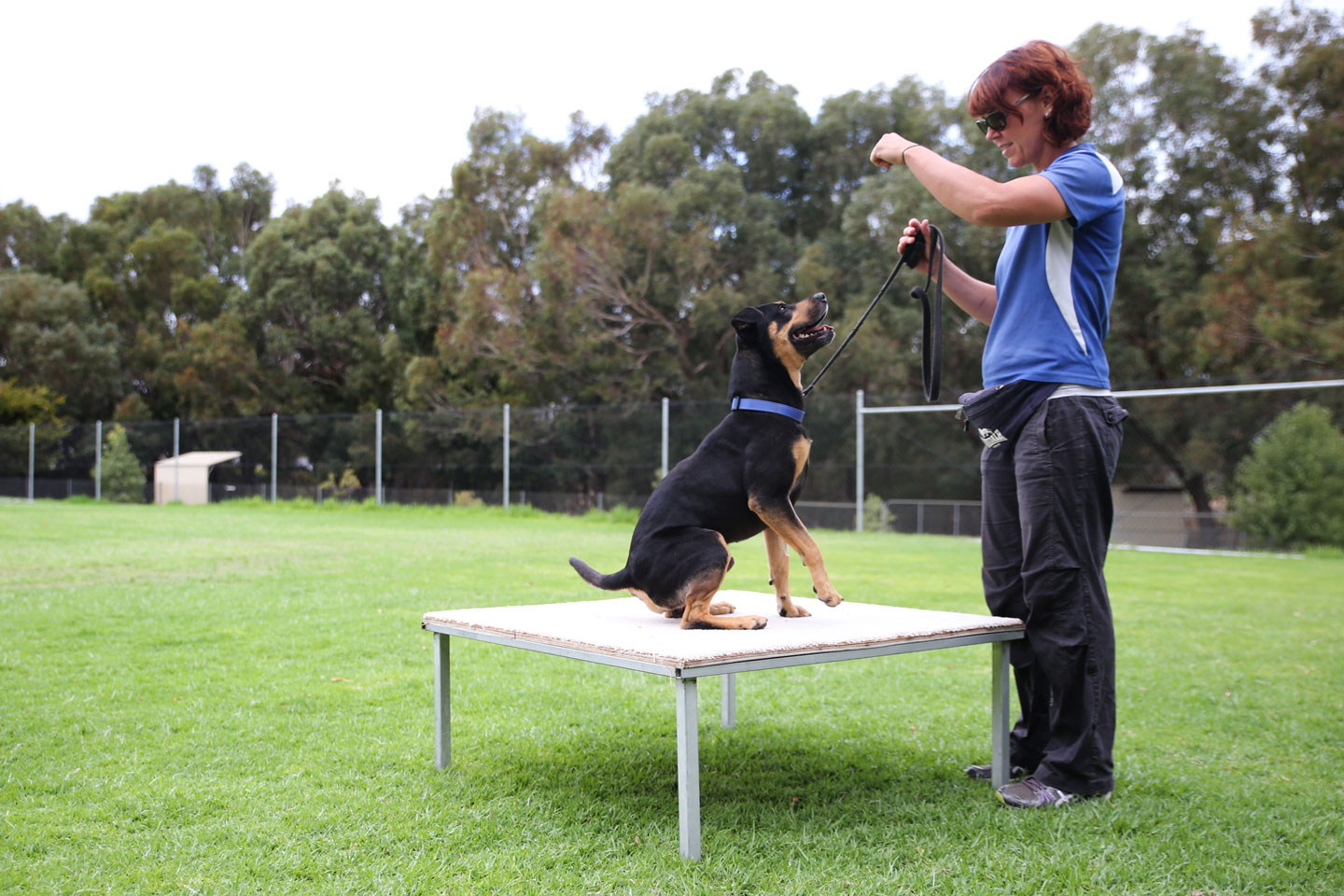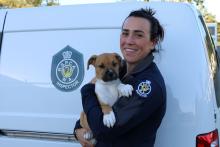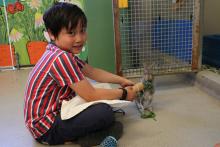

It’s no secret bringing a pet into the home was a solution for many who felt lonely and isolated during COVID-19 lockdowns.
As interest in adoptions soared, RSPCA WA’s shelter team continued operating, working in split teams to limit transmission of the virus, and switching to appointment-only adoptions.
The appointments, which were initially introduced as a safety measure to ensure social distancing, proved to have added benefits for the team.
RSPCA WA Inspector Jayde Palin rescue kitten.
“They facilitated better allocation of staff resources, and were successful in attracting more genuine adopters, rather than people who were just looking to browse,” RSPCA WA chief executive Ben Cave said.
“Additionally, background information provided by potential adopters when making an appointment allowed staff to better match pets with their forever family.
“This was a key learning from the pandemic and appointments continue to be used today.”
In 2020 and 2021, 941 animals were adopted through the organisation’s Animal Care Centre in Malaga.
Despite community concerns and media commentary, RSPCA WA did not report a spike in post-pandemic returns or surrenders as people returned to work.
Mr Cave said while this was influenced by the fact that Western Australia experienced shorter lockdowns, it was also a testament to the great care RSPCA WA staff took to ensure animals went to the right home.
RSPCA WA Inspector Florence Maude rescue.
The strong bond between people and their pets was a key theme through the pandemic, presenting RSPCA WA with a unique set of learnings and opportunities.
Solutions for handling disruptions to the organisation’s workforce continue to benefit the charity organisation today.
RSPCA WA continued to rescue, rehabilitate and rehome animals in need safely, while building flexibility and resilience into its administrative operations.
It obtained a Lotterywest grant to upgrade technology, which proved beneficial for its enforcement operations.
“New laptops allowed our inspectors to complete administrative duties while out on the road and share important information quickly through cloud-based software,” Mr Cave said.
“The upgrades helped facilitate the dissemination of timely and trusted advice to pet owners, as they struggled to navigate isolation and lockdowns.
“They also allowed administration staff to work from home, protecting themselves and their colleagues.”

RSPCA WA Dog Training
With many owners forced to stop work and isolate at home, there was a concern increased mental health and financial pressures would put pets at risk.
Precautions such as upgraded protective equipment, additional cleaning measures and physical distancing made it possible for RSPCA WA’s inspectors to remain on the road as critical workers.
RSPCA WA’s 11 inspectors covered nearly 270,000 kilometres investigating 6,637 reports of cruelty during the first two years of the pandemic.
It is only now the extent of the pandemic’s impact on pet ownership is starting to come to light.
Research from Animal Medicines Australia released late last year revealed a big jump in new and less experienced pet owners.
The research found that 37 per cent of companion dogs alive in Australia today were acquired since the onset of the pandemic – and that more dogs were being kept indoors only.
“These gaps in knowledge and experience present a clear welfare concern and will be a focus for RSPCA WA as we look ahead to 2023,” Mr Cave said.
“Alongside RSPCA WA’s community outreach and education programs, dog training classes will play a key role in preventing fallout from the pandemic.
“Increasingly, local governments and progressive organisations developing new residential projects, such as Stockland, are seeing the value in educating residents about dog ownership to prevent common issues such as strays and dog attacks.”
RSPCA WA Inspector Peta Janssen rescue puppy.
Last year, 4,658 dogs were trained across 16 metro locations, and RSPCA WA is excited to explore a regional expansion this year.
It is also seeking to collaborate more with the public and private sectors to bring its services to new areas and regions.
“RSPCA WA has emerged from the pandemic as a stronger and more agile organisation,” Mr Cave said.
“We are proud to have continued to rescue animals and find them loving, new homes throughout the pandemic, as RSPCA WA has done for the past 130 years.”















